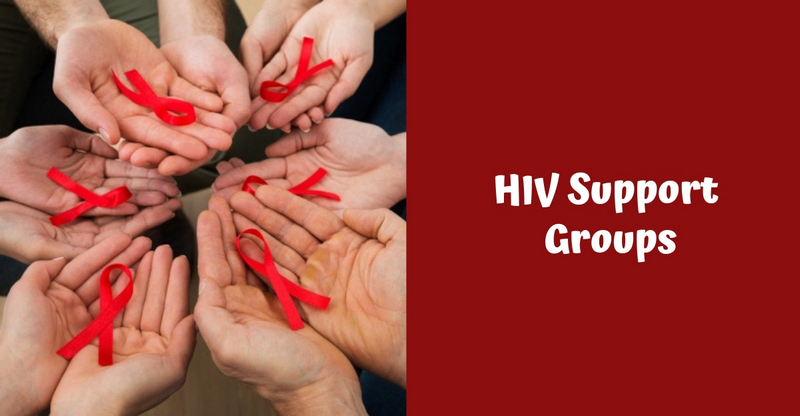HIV Support Groups

Did you know that there are different types of group support for HIV-positive people? We will tell everything on this topic.
Nowadays, more and more support groups appear to help rehabilitate HIV-positive people. This is a good way to get new information, share your experience and find support among people with similar life difficulties.
But sometimes, despite the obvious benefits, people undergoing treatment in these groups say they do not get the expected result. For example, instead of support from a person, they require active actions or, on the contrary, when a person attempts to prove himself, specialists intervene in the work, try to control the activity of the group. Often this is due to the fact that people are poorly versed in choosing a particular support group and as a result make a choice in favor of opposing methods of work, unlike those that they need. Basically, there are three main types of assistance services.
Main types of assistance services
- Support groups are groups in which you can share your experience, problems and ways to solve them. HIV-positive participants who come there for help are most often in a state of crisis. In these groups, they are helped to accept the fact that they have HIV, learn to talk about it. The responsibility and main control are placed on the shoulders of the specialist conducting the lesson. The only thing that can interfere with the positive effects of therapy is if the moderator does not take into account the real needs of the group members;
- Self-help groups differ from the support group only in that the responsibility for the positive process lies on the shoulders of the HIV-infected themselves. To create this type of group support, an activist group of people living with HIV is needed. This group is suitable for those who want to get advice and support from people who have real experience, and not from specialists who, most likely, are not personally “familiar” with this disease;
- Psychotherapeutic groups provide HIV-positive participants with the opportunity for personal growth, develop communication skills and allow them to learn new things not only about others but also about themselves. The main feature is the presence of the goal to which the psychotherapist leads. The success of this group depends on the professionalism of the specialist and on the willingness of participants to belong to this group.
There are also various groups focused on individual social groups. For example, services for HIV-positive pregnant, lactating, adolescents, retirees, sexual minorities, and people with HIV who use narcotic drugs.
There are support groups that are not widely known. For example, there is a public organization, the members of which actively communicate with prisoners suffering from HIV in order to support them after they are released. Also, there are dating clubs for HIV-positive people, thanks to whom many have found a mate.
All of these organizations play a big role in the lives of HIV-positive people. They give them the necessary support, give a second wind and the will to live. In support groups, people can talk about their problems and find a solution for them, take something from other people’s experience and share their experience.
HIV support groups as a way to overcome loneliness
People join support groups to cope with any difficult situation. Why it’s important to visit such groups?
You are not alone
It is very difficult to talk about your HIV status, especially when it comes to talking with your closest person. Support groups gather people living with HIV, just like you. This is the place where you don’t need to hide your HIV status. You will no longer be lonely because you will find yourself among people who are concerned about the same issues. None of them will treat you with prejudice or unnecessary pity. No one will ask you tactless questions or evaluate your actions.
Safely
The main condition of the mutual aid group is confidentiality. The group can include a variety of people, regardless of age, sexual orientation and life experience. Everything that happens during the work of the group remains inside it – this is the main rule. Therefore, you can be sure that no one but your group members will know about your HIV status and your problems.
They will listen to you
People often come to the support group just to tell about themselves. You will be listened to. Your fears, doubts and experiences will be shared by people who have overcome difficult life periods: accepting their HIV status, difficult conversations with the family, starting treatment and adapting to therapy. They will treat your questions with understanding, and you can find answers to them together.
They will help you find the answers
After consulting with a group counselor and its members, it will be easier to find the right words to talk with relatives. When communicating you will understand that HIV is not a sentence but a disease. You can live a very long time with it.
Sharing personal experience
Communication in a group will allow you to learn about the practical experience of the life of people with HIV, learn to take care of your health. You will realize in practice that most problems can be solved. With the help of people like you, you will find your own unique way of dealing with the difficulties of living with HIV. You can discuss all the issues that may bother you: how to maintain your health, how to tell your partner or parents about it. In time, you will be able to help other people who come to the group.
How can I find such a group?
There are mutual aid groups in almost all cities of our country. You can easily fin in on the Internet. This will help you gain confidence in your abilities and will relieve you of being alone in solving the problems of living with HIV.
